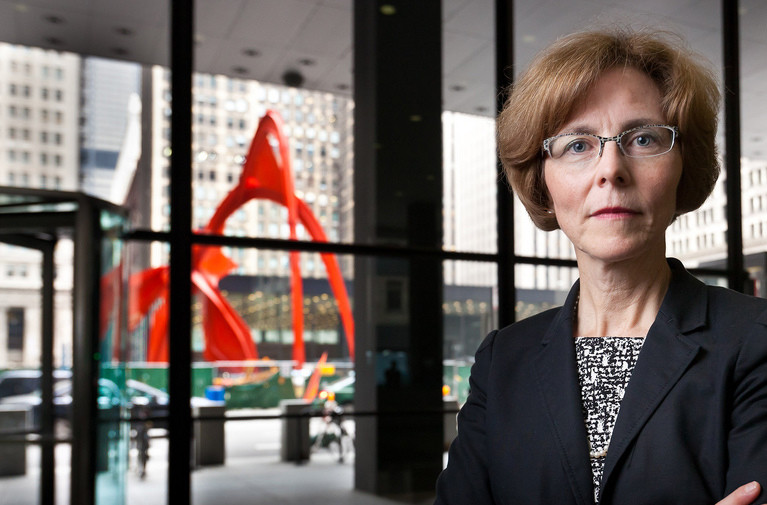Chicago, IL – August 28, 2025
In a significant blow to plaintiffs in the ongoing multidistrict litigation (MDL) over cow’s milk-based infant formula and the risk of necrotizing enterocolitis (NEC), U.S. District Judge Rebecca R. Pallmeyer has dismissed the second bellwether trial, marking the second such case removed from the calendar in recent months. The ruling, issued in late July in the Northern District of Illinois, comes amid a series of procedural hurdles in the federal MDL (No. 3026), which now includes over 740 cases alleging that formulas like Abbott Laboratories’ Similac and Mead Johnson’s Enfamil contributed to severe intestinal damage or death in premature infants. Meanwhile, in a separate development frustrating class action participants, new lawsuits targeting claims administrators are delaying payouts from Meta’s $725 million Facebook privacy settlement, highlighting ongoing challenges in mass tort resolutions.
Second Bellwether Tossed in Infant Formula MDL
The dismissal of the second bellwether case, involving plaintiff Keosha Diggs, follows a similar fate for the first trial in May, where Judge Pallmeyer granted summary judgment to Abbott Laboratories. In the Diggs matter, the judge excluded the plaintiff’s causation expert testimony for lacking a sufficient factual fit to the infant’s specific gestational age and weight, leading to summary judgment for the defense just weeks before the August trial was set to begin. Pallmeyer noted the decision’s “limited direct application” to other cases but left the door open for potential revival if additional evidence emerges, signaling ongoing scrutiny of expert reliability in this high-stakes litigation.
The MDL consolidates claims that manufacturers failed to warn about NEC risks from cow’s milk-based formulas fed to preterm babies, a condition causing intestinal tissue death and affecting up to 10% of very low birth weight infants. Despite federal setbacks, state courts have seen plaintiff successes: A Missouri jury awarded $495 million against Abbott in July 2024, and an Illinois verdict reached $60 million against Mead Johnson in March 2024, though a defense win was later overturned. These verdicts underscore the divide between state and federal forums, with plaintiffs’ attorneys arguing the MDL’s procedural rigor favors defendants.
Attorneys for the Diggs family expressed frustration, with lead counsel stating, “This ruling highlights the challenges in proving causation under the MDL’s stringent standards, but it doesn’t undermine the science linking formula to NEC.” The next bellwether, involving Rebekah Etienne and Deondrick Brown Sr., is slated for November 3, 2025, followed by Alexis Inman’s case in February 2026. Dispositive motions in the Inman case are due August 25, with responses by September 22, keeping the docket active despite delays.
Abbott and Mead Johnson maintain the claims lack merit, citing regulatory endorsements from the FDA, CDC, and NIH that no conclusive evidence ties their products to NEC causation. The companies have faced over 1,400 lawsuits nationwide, with the MDL’s growth to 744 cases reflecting continued filings post a key Daubert ruling preserving plaintiffs’ general causation experts. Experts predict these bellwethers could influence settlements, potentially valuing average claims at $500,000 to $1 million based on state verdicts, though federal outcomes may temper expectations.
Lawsuits Against Claims Administrators Stall Facebook’s $725M Payouts
In parallel, the $725 million settlement resolving allegations that Facebook (now Meta) improperly shared user data with third parties like Cambridge Analytica is mired in frustration, with new lawsuits against claims administrators delaying distributions to over 17 million validated claimants. The settlement, approved in October 2023 by U.S. District Judge Vince Chhabria in the Northern District of California, stems from privacy violations affecting U.S. users from May 2007 to December 2022.
Objectors’ appeals filed in November 2023 by attorneys Kendrick Jan and John Pentz—challenging attorney fees up to $181 million and low per-claimant payouts (estimated at $30)—have prolonged the process, with the Ninth Circuit not expected to hear arguments until early 2025 or later. However, the primary snag now involves lawsuits against administrators Angeion Group and others, accused of mishandling claims processing, including rejecting valid submissions and delaying verifications amid 28 million initial filings (with 8 million flagged as fraudulent and 2 million duplicates).
Class members report frustrations over rejected claims despite eligibility, with one suit alleging administrators “arbitrarily” denied payouts, potentially costing users millions. Meta has denied wrongdoing but agreed to the fund to avoid trial costs, while objectors argue the $180 million fee request—25% of the fund—is excessive given the modest individual awards. Payouts, originally eyed for late 2024, are now projected for mid-2025 or beyond, with options like PayPal, Venmo, or checks once resolved.
Lead plaintiff attorney Derek Loeser hailed the claim volume as “the largest in U.S. class action history,” but administrators face scrutiny for inefficiencies. The settlement’s administrator website warns of scams, urging users to monitor status via secure portals. This impasse echoes broader class action woes, where administrative disputes can extend resolutions by years, eroding claimant trust.
These cases illustrate the complexities of mass litigation: While the infant formula MDL pushes toward resolution despite bellwether dismissals, the Facebook settlement’s administrative battles risk prolonging relief for millions. As both dockets evolve, stakeholders await pivotal rulings that could redefine liability and payout timelines in these landmark disputes.
